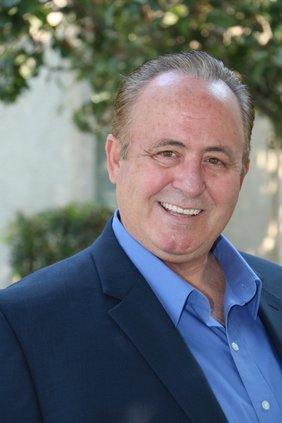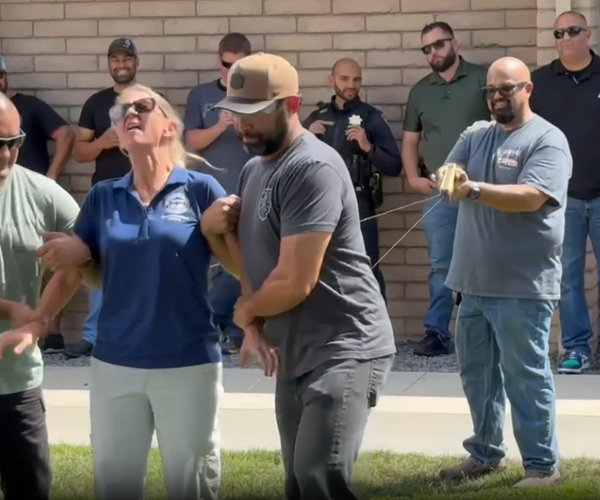Fred Cunha knows what it takes to deliver projects.
During his career as an IBM program manager Cunha was entrusted with managing significant funding and determining the best way to use that money to accomplish objectives while adhering to a performance timetable.
Cunha’s second career as a registered nurse has sharpened his empathy.
Cunha believes that background would serve Manteca will if he is elected Nov. 3 to the City Council.
A case in point is the vexing homeless issues that Manteca is dealing with.
“If you drive the 120 Bypass it looks like a KOA campground for the homeless,” Cunha said.
Cunha is no stranger when it comes to dealing with the homeless. He has worked in emergency rooms that cared for many homeless patients and has a clear grasp of the substance abuse and mental health issues that must be dealt with.
He said what Manteca needs to do is get a resource center — not a homeless shelter per se — up and running as quickly as possible.
“It is needed now not maybe in two or so years from now,” Cunha said. “Homeless is a big public safety issue.”
And by that Cunha just doesn’t mean just crime. He noted they pose potential community public health risks based on the inability to take care of basic hygiene needs that can lead to the spread of communicable diseases.
He wants Manteca to provide the resources to augment the efforts of the Manteca Police community resource officers which he believes is a better use of tax dollars than the city spending $172,000 to hire someone to coordinate the city’s homeless efforts. Cunha noted administrative support of what the officers working with the homeless are doing could be addressed by dedicating one of the three new positions added to the city manager’s office during the past six months.
The best path forward involves further encouraging — and working with — faith-based and non-government organizations to help get the homeless off the streets and become self-sufficient. Manteca’s early success with the homeless by the community resource officers working to develop a network of such groups to refer homeless to underscores that point.
Cunha also believes there must be consequences for those who are homeless but refuse to seek help when it is offered repeatedly and choose not to comply with the rules.
“We need to hasten their exit from the city,” Cunha said of those that do not want help, adding “we must enforce the law and work to change existing laws to address” such individuals.
Addressing homeless issues is part and parcel to his top priority — public safety.
And when it comes to police, Cunha makes it clear.
The issue is not defunding the police. It is making sure law enforcement is fully funded.
“A safe community requires law enforcement that is fully funded and protected,” he noted.
That just doesn’t just mean more patrol officers. Crime prevention through community outreach efforts such as organizing Neighborhood Watch Groups factors into a fully funded law enforcement effort.
Adequate funding means police can also get a better handle on everything from speeding to illegal truck parking in neighborhoods.
Overall, though, Cunha said, Manteca Police are doing a good job.
As a registered nurse who handles in-home care for COVID-19 patients the devastation of the coronavirus is something he deals with every day. At the same time he is acutely aware of the economic damage the state’s response has done to businesses.
It is why he sees wearing masks as a way to slow the spread of the virus until herd immunity to some level is reached and a vaccine is developed is imperative.
That said and as long as protocols are followed he believes local communities are best equipped to determine what works best for them in terms of openings.
Cunha wants to call on his experience as a registered nurse in South County hospital emergency rooms to work with local hospitals and healthcare providers to increase the local healthcare infrastructure.
“As a registered nurse, I witnessed first-hand the inadequacies of our healthcare system,” Cunha said.
As for how the city is run, Cunha believes his skills sets as a program manager will help assure there is responsible spending.
He questioned the wisdom of placing the police chief on administrative leave for nine months while investigating anonymous complaints that turned out to be groundless and then still terminating her. Between the time that she was paid not to work, the acting chief working out of pay class, and the cost of an outside investigator the city spent well over $200,000 or enough to hire an additional police officer.
“We need to know how money is spent,” Cunha said.
To that extent Cunha doesn’t believe resources are necessarily being committed in a manner that is in the public’s best interests. An example is streets and sidewalks. Despite maintenance issues of both being a major issue in the community, Manteca has yet to restore its street maintenance crew back to pre-2010 levels when it was slashed in half due to the recession.
“The city does a tremendous job of planning but needs more doers,” Cunha pointed out.
When it comes to infrastructure, Cunha said the top street project going forward has to be the Airport Way corridor.
Cunha pointed to traffic congestion, washboard pavement and an interchange that is significantly more impacted than Union Road that is benefitting from a $28.4 million upgrade that is now underway. And while the $34 million McKinley Avenue interchange expected to break ground in the next year will help relief some congestion, McKinley is not a major north-south street as Airport Way which the city has no concrete plans in place to work toward upgrading its interchange with the 120 Bypass.
Cunha embraces pushing for more high paying jobs. He pointed to Manteca’s proximity to major markets such as the Bay Area and Sacramento as well as its extensive freeway and rail network as well as the nearby Port of Stockton and Stockton Airport.
And even though truck movements is key to getting many high paying jobs, Cunha said Manteca is still struggling to get a truck route plan in place built on the objective of a smooth flow of goods, safety, and minimal impact to the community.
Cunha was raised in Watsonville. He’d pass through Manteca on a regular basis traveling to Escalon where his grandfather raised wheat. It was on his grandfather’s farm as a 9-year-old he learned to drive a tractor.
Cunha started his tech career in San Jose before IBM moved him to Chicago.
After more than 20 years with Big Blue, the Great Recession triggered a need for the firm to downsize in 2007. He took a buyout and went on a cross-country motorcycle trip before getting a gig as a Hewlett-Packard consultant in 2008.
He decided to pursue a career as a registered nurse while living in Rocklin and went to Sierra College to earn the necessary degrees.
Cunha ended up working at Dameron and Sutter Tracy before ending up at San Joaquin General Hospital for three years where part of his duties was to help coordinated major incident training for health emergencies involving all county hospital and emergency services such as for major earthquakes and pandemics.
He now does home healthcare with most his patients dealing with COVID-19. That is in addition to handling leadership roles in his church,
Cunha’s wife Christine is a Manteca Unified teacher.
Cunha moved to Manteca in 2012.
The council hopeful said his intent is not to pursue what many call “Bay Area” values but to work toward Manteca being an even better community for people to live, work and play in.
Information on his campaign can be found at www.Cunha4Manteca.com.
To contact Dennis Wyatt, email dwyatt@mantecabulletin.com






